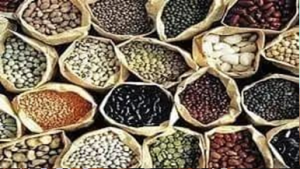
ADDIS ABABA -The new macroeconomic reform will be pivotal in promoting value addition, balancing imports and exports, attracting investment, and curbing illegal trading in Ethiopia’s cereal and oilseeds sector, according to senior experts.
Speaking to the Ethiopian Press Agency (EPA), Ethiopian Economy Association Senior Analyst Arega Shumete (PhD) emphasized that the reform would address the foreign currency shortage, thereby enhancing the nation’s export performance.
Arega highlighted that the association’s survey indicated the reform would significantly influence the cereals and oilseeds sector by reducing parallel market activities and illegal trading, both of which have long plagued the industry. Beyond increasing investment, the reform is expected to create new market opportunities. “By addressing the foreign currency shortage, the reform will stabilize market costs and open doors for traders,” he said.
While acknowledging that internal and external factors might challenge the reform’s timing, the analyst warned of potential concerns related to brokers emerging within the system. He also noted that 85% of input for local manufacturing companies is imported, with exporters previously benefiting from this system. However, he stressed the need for cautious oversight in import-export operations, with a focus on adding value to products.

Ethiopian Pulses, Oilseeds, and Spices Processors Exporters Association (EPOSPEA) President Edao Abdi (PhD) also remarked that the new reform would stimulate the cereals and oilseeds sector, improving export performance. Although agriculture accounts for over 30% of the GDP and more than 75% of exports, the sector’s performance has been unsatisfactory.
Edao explained that previous import-export trends imposed a burden on consumers and contributed to rising inflation. The new policy, however, separates import and export functions, creating a clear system that will help stabilize the market.
The reform is also expected to open opportunities for investors across various sectors, as it fosters a more competitive market system. By allowing value addition, enhancing market share, and increasing productivity, the reform will encourage legal trading while significantly reducing the estimated 20% of products exported illegally.
Additionally, Edao noted that the reform would help stabilize the oilseeds market, maintain prices, and attract more revenue for the nation.
BY BETELHEM BEDLU
THE ETHIOPIAN HERALD FRIDAY 13 SEPTEMBER 2024





